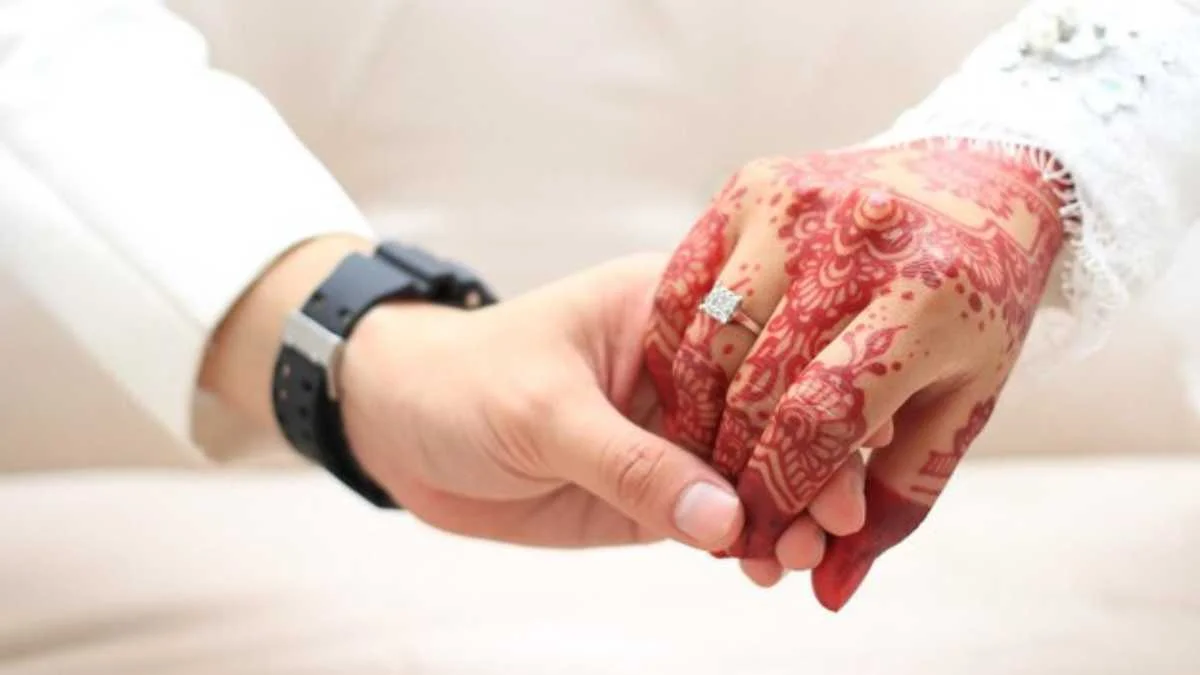GENERAL
Is Civil Marriage Allowed for Muslims in the UAE?

Introduction
In modern times many Muslim couples are trying to balance religious values with legal recognition of marriage, especially in the multicultural environment of the UAE. It is a common question whether civil marriage is permissible for Muslims in the UAE.
Short answer: It depends. While Muslims of the UAE nationality must be married under Sharia law, certain Muslim expatriates are permitted to register a civil marriage under Abu Dhabi Law No. 14 of 2021, subject to specific conditions.
Table of Contents
What Is the Difference Between Nikah and Civil Marriage?
Nikah refers to traditional Islamic marriage, a spiritual contract made by a man and a woman in the presence of witnesses. It consists of:
- A wali (guardian) for the bride
- A mahr (dowry)
- Mutual consent from both parties
- An officiant such as an imam or scholar.
A civil marriage, however, is the lawful union of a man and woman solemnized as a civil contract, under secular rules, regardless of faith or nationality. It provides:
- Legal recognition of the marriage
- Rights over property, inheritance, and medical decision-making
- Acquisition of rights and benefits in favor of the spouse, like a spousal visa
While nikah would fulfill the religious requirements, civil marriage provides legal protection to the couple, especially in countries where Islamic marriage is not recognized per se.
Is Civil Marriage allowed for Muslims in the UAE?
Yes, but there are limits.
Civil marriage is primarily available to non-Muslim residents and tourists under Abu Dhabi Law No. 14 of 2021. The Muslim expatriates (non-UAE nationals) can apply for civil marriage in Abu Dhabi if they satisfy the eligibility criteria, particularly:
- They are from a country recognizing civil marriage.
- They are not bound by Sharia-based personal status laws of their country.
- They cannot be UAE citizens since Emirati Muslims are still governed by Federal Law No. 41 of 2024 (Personal Status Law based on Sharia). For UAE citizens who are Muslims, marriage has to be conducted strictly according to Sharia, through the Nikah marriage ceremony.
Sharia Requirements for Muslim Marriages in the UAE
According to Sharia law, Muslim citizens and residents should get married in the prescribed way:
- Formal Nikah or Islamic marriage contract
- Consent from the guardian of the bride, known as a wali
- Two male Muslim witnesses during the ceremony
- Premarital medical examination
The groom must be Muslim, whereas the bride must be either Muslim or from the People of the Book under certain conditions.
Civil marriages that fail to meet Sharia conditions are not recognized religiously for Muslims.
Legal Framework for Civil Marriage in Abu Dhabi
The UAE has adjusted its laws to accommodate its multicultural society. Muslim expatriates can now register for civil marriage in the UAE under Abu Dhabi Law No. 14 of 2021. The UAE national Muslims are still required to marry under Sharia law.
Abu Dhabi Civil Marriage Law No. 14 of 2021
Abu Dhabi introduced Law No. 14 of 2021, allowing civil marriage to the following parties:
- All non-Muslim residents and tourists
- Marriage being held in a country that does not apply the provisions of Islamic law primarily in matters of personal status
- The foreigner who holds the nationality of a country that does not apply the provisions of Islamic law mainly in matters of personal status.
- If the marriage was concluded in accordance with the provisions of civil marriage.
Some Muslim couples prefer to perform both a Nikah for religious validity and a civil marriage just for legal purposes; this serves to satisfy the requirement of Islamic law while securing the legal benefits, such as the possibility of obtaining visa sponsorships or international recognition of marriage.
Civil Marriage Eligibility for Muslim Expats:
- Both parties must provide their consent to marriage.
- Both parties must be at least 18 years ’old.
- The parties must not be related by the first or second degree.
- The parties must not be married to any other person.
- Neither party must be a UAE national.
Required Documents:
Documents will have to be furnished, and they are:
- A copy of the passport for both parties
- A copy of the Emirates ID for both parties (if available)
- If one of the parties has been married previously, evidence is required that the marriage has now been dissolved (e.g., divorce judgment or even a death certificate).
How to Register a Civil Marriage in Abu Dhabi
Eligible Muslim expats who wish to register their civil marriage in Abu Dhabi may do so through the Abu Dhabi Judicial Department (ADJD) for all services, either online or offline. The process includes
- Fill out the application form.
- Upload your documents.
- Choose a date for the ceremony.
- Sign the marriage contract before a notary.
This process is different from Sharia-based nikah, as it is fast and does not require a wali, witnesses, or medical tests.
How to Combine Nikah and Civil Marriage in the UAE
Step 1: Perform the Nikah Ceremony
- Conduct the Islamic marriage through a licensed imam or at a Sharia court.
- Ensure that conditions of Sharia are met during the ceremony: guardian (wali), two male Muslim witnesses, and a mahr (dowry).
- Obtain the official Nikah certificate.
Step 2: Attesting Nikah Certificate
- Have the certificate attested by the UAE Ministry for Foreign Affairs (MOFA).
- If the certificate was issued outside the UAE, it must also be legalized by:
- The foreign ministry of the issuing country
- The UAE embassy in that country
- MOFA in the UAE
Step 3: Prepare for Civil Marriage
Submit the relevant documents, including passport, identity card, and certificate of divorce or death, if applicable.
Step 4: Register for Civil Marriage
One may apply through the Abu Dhabi Judicial Department (ADJD) portal using the UAE Smart Pass.
- Select express or standard service (fee range: AED 300-AED 2,500).
- Then, physically attend and sign the civil marriage contract before a court official.
Step 5: Attestation of the Civil Marriage Certificate
After registration, have the civil certificate attested by the MOFA for use abroad or for UAE authorities.
Why Civil Marriage Matters for Muslim Couples
- It confers governmental recognition to marriage.
- Grants legal rights (e.g., inheritance, property, spousal medical decisions).
- Facilitates sponsorship of a visa and immigration benefits.
- Offers clarity in legal matters such as divorce, custody, and dispute resolution.
- Suitable for Muslim expatriates and interfaith couples without violating Islamic principles when combined with a Nikah.
How Dubai Court Marriage Can Help
Handling both the religious marriage ceremonies and the legal processes can be stressful. That is why Dubai Court Marriage is here for your assistance.
We ensure that your marriage is
- Sharia-compliant
- Legally valid in the UAE as well as any other country
- Managed smoothly with minimal paperwork
Planning a nikah, a civil marriage, or both? Our team will assist you from start to finish—from preparation of documents to representation in court.
Ready for your marriage journey? Contact Dubai Court Marriage now. Let us help you with a civil marriage that respects your faith and protects your future.
-

 GENERAL7 months ago
GENERAL7 months agoChristofle – For Those Who Dream of Family Heirloom Silver
-

 SPORTS9 months ago
SPORTS9 months agoDiscover the World of Football with Streameast: Watch Your Favorite Leagues and Tournaments
-

 GENERAL3 weeks ago
GENERAL3 weeks agoUncovering the World of кинокрадко: The Dark Side of Film Piracy
-

 GENERAL3 months ago
GENERAL3 months agoATFBooru: Anime, Gaming, and Subculture Imageboard



























